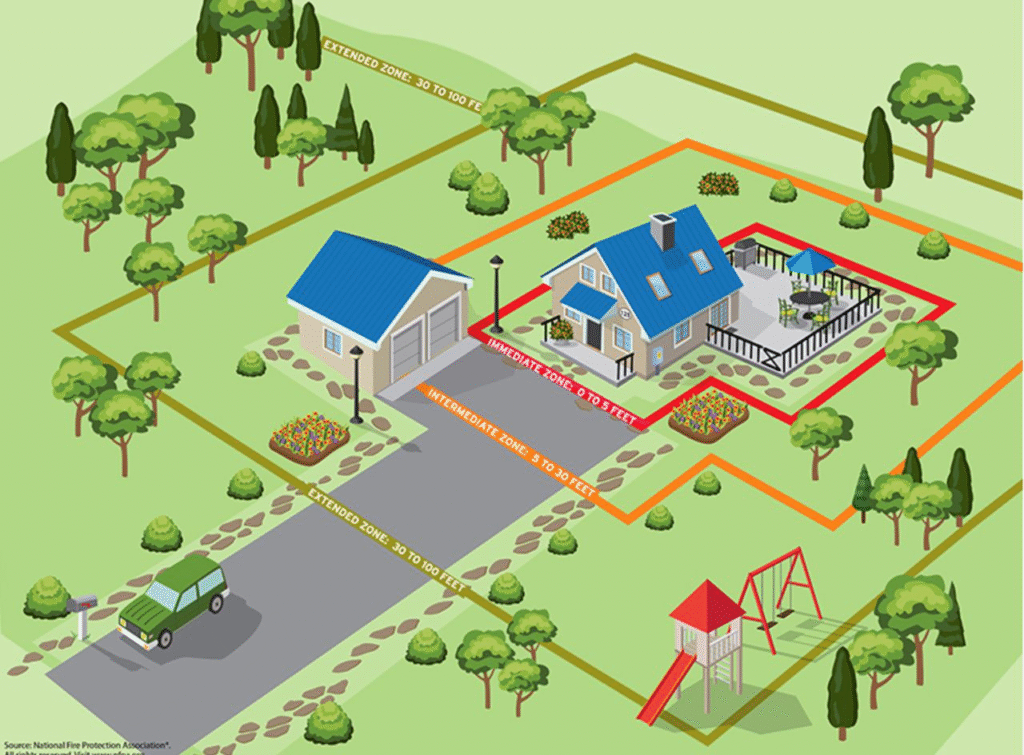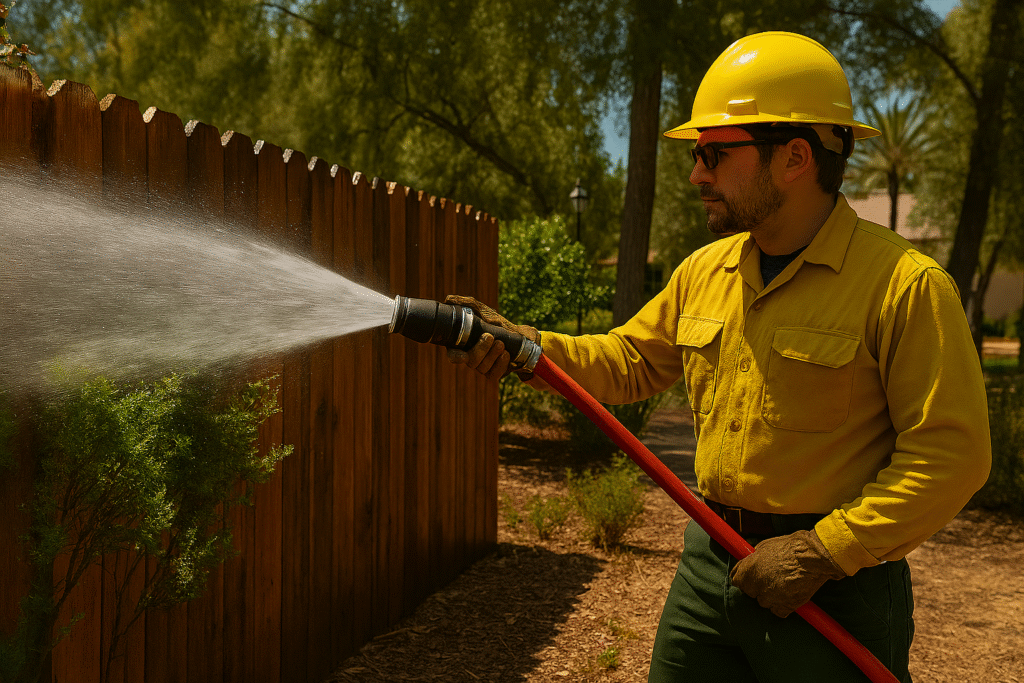
626-298-7198
🛡️ Property-Level Strategies to Mitigate Neighborhood Wildfires
🔲 1. Create Defensible Space (Zones 0–2)

Break your property into zones to reduce fuel and slow fire spread:
Tip: Think of defensible space as a firebreak that protects not just your home, but your neighbors’ too.
Break your property into zones to reduce fuel and slow fire spread:
Tip: Think of defensible space as a firebreak that protects not just your home, but your neighbors’ too.
Treat all vegetation and flammable materials in your yard with our Fire Resistant treatment.

🧱 2. Harden Your Home
Make your structure resistant to embers, radiant heat, and direct flame:
- Roofing: Use Class A fire-rated materials (metal, tile, fiberglass asphalt).
- Siding: opt for stucco, fiber cement, or metal.
- Vents: Install ember-resistant vents with 1/8″ mesh screens.
- Windows: Use tempered glass and noncombustible frames.
- Decks & Fences: Build with ignition-resistant materials; isolate fences from the house.
🧹 3. Maintain Regularly
Wildfire resilience is a year-round commitment:
- Clean gutters, roofs, and under decks.
- Remove dead vegetation and leaf litter.
- Store firewood and propane tanks 30+ feet from structures.
- Keep irrigation systems functional and vegetation hydrated.
🚪 4. Improve Access and Emergency Readiness
Help first responders protect your home and others:
- Ensure visible address signage.
- Maintain clear driveways and turnarounds.
- Install exterior hose bibs with long hoses.
- Prepare an emergency kit and evacuation plan.
🤝 5. Coordinate with Neighbors
Wildfire doesn’t respect property lines—collective action matters:
- Share defensible space strategies.
- Organize community clean-up days.
- Encourage Firewise USA® participation.
- Advocate for fuel reduction on adjacent public lands.
Leave a Reply